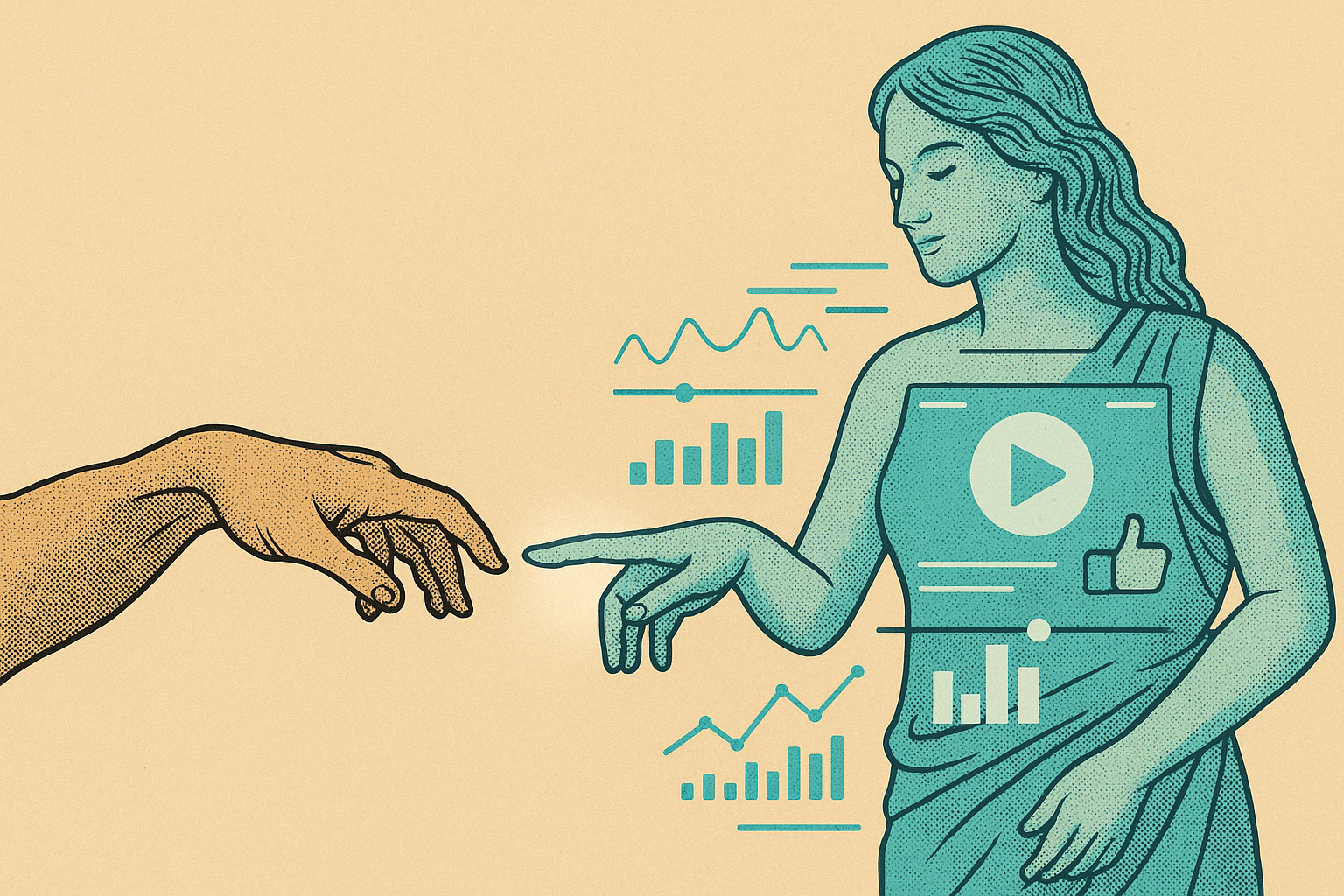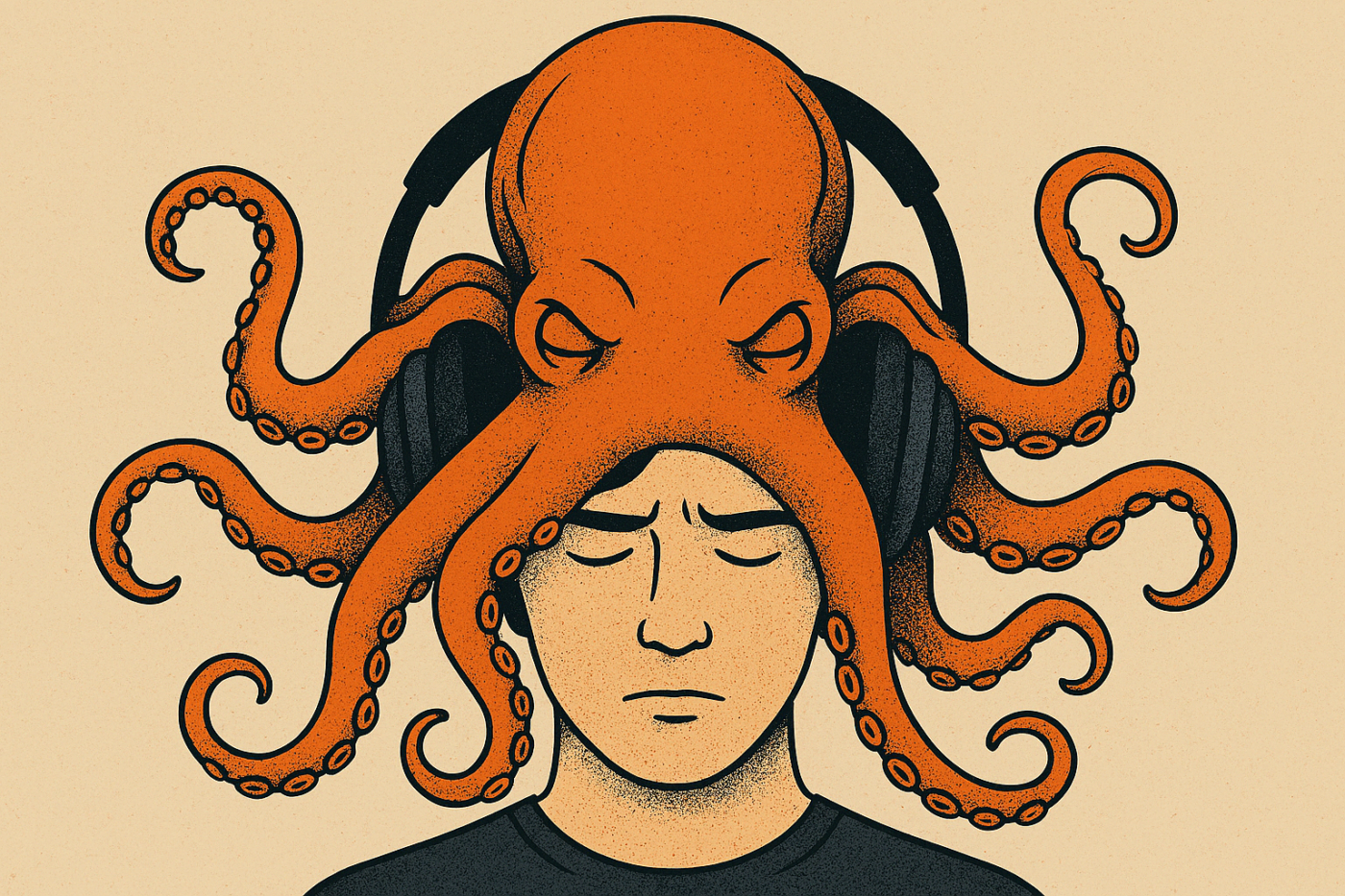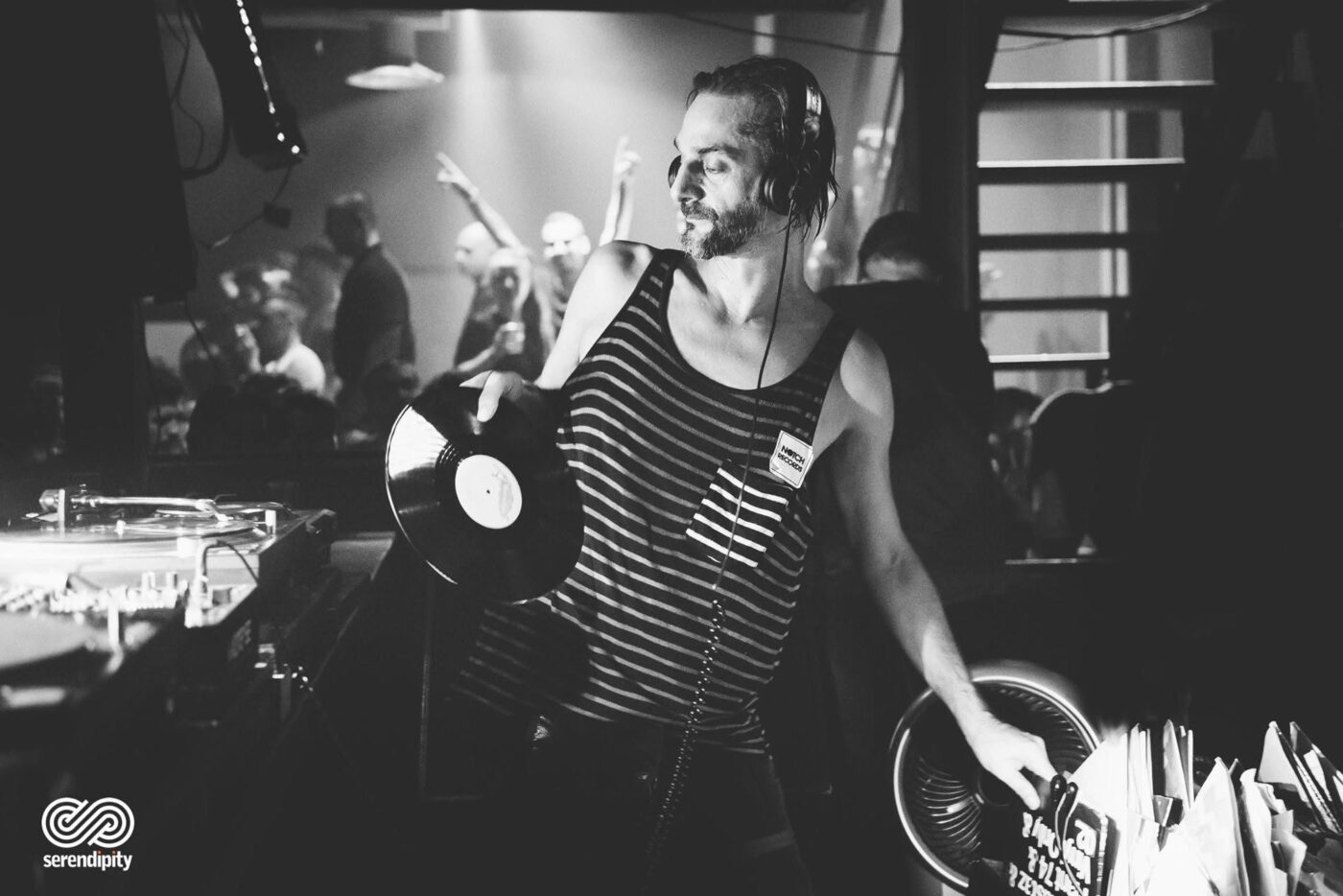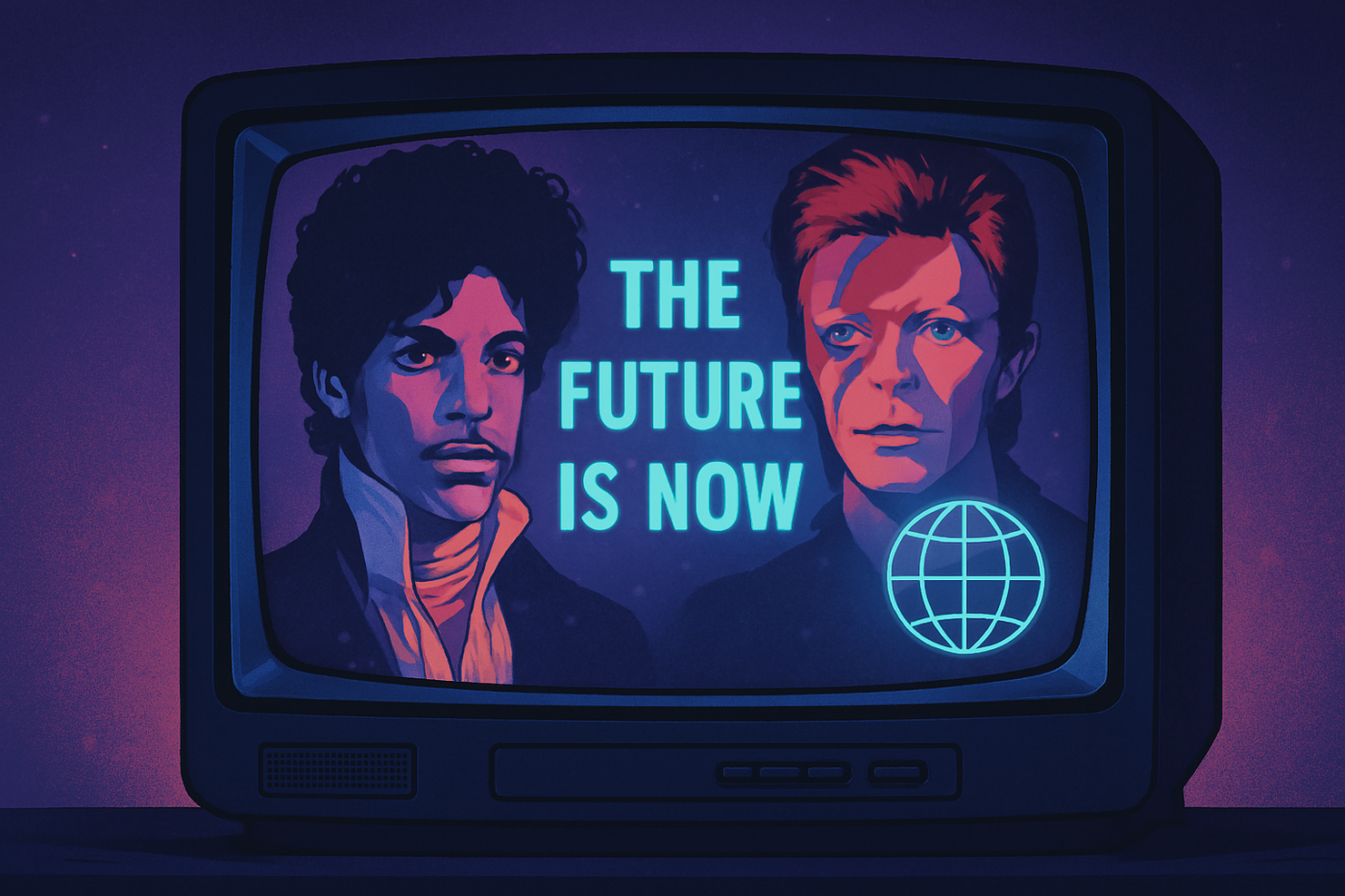You click play. It plays what you love. Or so it seems. But who’s shaping whom? And why do you always hear more of the same? The algorithm doesn’t love you. It just converts you.
🧠 The illusion of personalization
“The more you listen, the better it gets.” Or does it?
The algorithm doesn’t really know you. It knows what people like you listen to. It calculates. It clusters. It optimizes. Not to surprise you, but to keep you there.
The goal isn’t your growth. It’s your retention.
⚖️ How the algorithm really works
Most music platforms use collaborative filtering: they track users with similar tastes and push shared content. Some use audio similarity models based on tempo, timbre, genre.
But these are predictions, not insights. They match you to patterns — they don’t know you. And the more you follow, the narrower your path becomes.
🎨 The lost aura
Walter Benjamin, in 1936, wrote about The Work of Art in the Age of Mechanical Reproduction. He warned that mass replication would strip artworks of their aura: their context, uniqueness, and presence.
Spotify took that to the next level. The same track, repeated endlessly, across billions of identical feeds. Music becomes non-event, flattened, quantified, and fed to you. Even discovery becomes algorithmic — pre-approved surprise.
💔 What we lose
We lose chance. We lose friction. We lose the album we bought because of the cover. The song that didn’t fit at first, but then cracked us open.
No algorithm ever changed someone’s life. A friend did. A record store did. A mixtape did.
⚡️ Silent homogenization
Platforms reward what works. What retains, what loops well, what doesn’t ask much. So music begins to adapt to the algorithm.
Artists shape their sound to meet playlist criteria: short intros, predictable progressions, familiar tones. Songs become content. Emotional depth gets filtered out.
🤝 Real alternatives
- Follow independent labels. Support online and physical record stores
- Use Bandcamp, SoundCloud, Netlabels — unfiltered by algorithm
- Listen to whole albums. No skip. No shuffle. Full presence.
- Make room for silence. Resist autoplay. Let curiosity drive.
💼 Conclusion
The algorithm doesn’t know you. But you can get to know yourself — through the music you choose to confront, not just consume.
This isn’t a call to unplug. It’s a call to reclaim. Listening is not a passive act. It’s a decision. And one that still matters.
📂 Verified sources
- Walter Benjamin – The Work of Art in the Age of Mechanical Reproduction, 1936
- Taruffi, L. et al. – Effects of Listening to Music on Creativity, Scientific Reports, 2017
- Pasquinelli, M. – Algorithmic Governance and the Black Box Society, Theory Culture & Society, 2015
- Seabrook, J. – The Song Machine: Inside the Hit Factory, W. W. Norton, 2015
- Spotify Engineering Blog – engineering.atspotify.com
Il nostro progetto è indipendente e senza fini di lucro.
Se ti piace quello che facciamo, puoi aiutarci con una piccola donazione.
This article was produced with the support of AI tools, used for content organization and textual optimization. The sources, ideas and materials come from the archive and activity of the Dancity Association.




